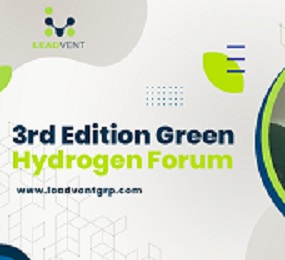Hydrogen, a versatile and clean energy carrier, is poised to play a pivotal role in decarbonizing the transportation sector. Its unique properties, such as high energy density and zero-emission operation, offer compelling solutions to the environmental challenges posed by traditional fossil fuels.
1. Fuel Cell Electric Vehicles (FCEVs):
- Passenger Cars and Light-Duty Vehicles: FCEVs offer several advantages over battery-electric vehicles (BEVs), including faster refueling times and longer driving ranges.
- Buses and Trucks: Hydrogen fuel cells are well-suited for heavy-duty vehicles, offering high power output and long-haul capabilities.
2. Heavy-Duty Transportation:
- Trucks: Hydrogen-powered trucks are increasingly gaining traction, particularly for long-haul freight transport and heavy-duty applications.
- Railways: Hydrogen fuel cells can power locomotives, reducing emissions and improving air quality in urban areas.
- Shipping: Hydrogen-powered ships are emerging as a promising solution for decarbonizing maritime transport, with potential applications in cargo vessels and passenger ferries.
3. Aviation:
- Aircraft: While still under development, hydrogen-powered aircraft hold the potential to significantly reduce aviation emissions. This includes both hydrogen combustion engines and fuel cell-powered aircraft.
4. Other Applications:
- Drones and UAVs: Hydrogen fuel cells can provide extended flight times and increased payload capacity for drones and unmanned aerial vehicles.
- Two-Wheelers: Motorcycles and scooters can be powered by hydrogen fuel cells, offering a clean and efficient alternative to gasoline engines.
Benefits of Hydrogen in Transportation:
- Zero-Emissions: Hydrogen fuel cells produce only water vapor as a byproduct, resulting in zero tailpipe emissions.
- High Energy Density: Hydrogen offers a high energy density per unit of weight, making it suitable for long-distance travel.
- Fast Refueling: Hydrogen refueling stations can refuel vehicles quickly, minimizing downtime.
Challenges and Future Outlook:
Despite its significant potential, the widespread adoption of hydrogen in transportation faces several challenges:
- Infrastructure Development: The need for a robust hydrogen refueling infrastructure is crucial for widespread FCEV adoption.
- Cost: The initial cost of hydrogen vehicles and refueling infrastructure remains relatively high.
- Hydrogen Production: Ensuring the sustainable production of green hydrogen from renewable sources is critical for the long-term viability of this technology.
Hydrogen offers a promising pathway towards a clean and sustainable transportation future. Continued research and development, coupled with supportive government policies and private investment, will be crucial to overcome the challenges and unlock the full potential of hydrogen in this sector.
Disclaimer: This article provides general information and does not constitute investment advice.
To register or learn more about the Forum please check here: https://www.leadventgrp.com/events/8th-edition-cee-hydrogen-summit/details.
For more information and group participation, contact us: [email protected]
















